 2018 Lexus NX I (AZ10, facelift 2017) Dimensions, Size & Specs
2018 Lexus NX I (AZ10, facelift 2017) Dimensions, Size & SpecsMeasurements of the 2018 Lexus NX I, engineered for optimal performance and comfort
| Dimensions | |
|---|---|
| Length: | 4640 mm182.7 in15.2 ft |
| Width: | 1845-1869 mm72.6-73.6 in6.1-6.1 ft |
| Height: | 1646 mm64.8 in5.4 ft |
| Ground Clearance: | 175 mm6.9 in0.6 ft |
| Trunk Capacity: | 501-555 liter17.7-19.6 cu ft |
| Trunk Capacity (Max): | 1600 liter56.5 cu ft |
| Weight Specifications | |
| Curb Weight: | 1787-1860 kg3940-4101 lbs |
| Maximal permitted Weight: | 2309-2395 kg5090-5280 lbs |
| Tire Specifications | |
| Rims Sizes: | 17-inch rims:
|
| Tire Sizes: |
|
The 2018 Lexus NX I (AZ10) with its 2017 facelift represents a compact luxury SUV option that balances style, performance, and practicality. Produced between 2017 and 2021, this generation of the NX offers a well-proportioned and dynamic vehicle suited to urban driving and suburban adventures alike. The exterior length ranges from 4638 to 4640 mm (182.6 to 182.7 inches), while its width spans between 1845 and 1869 mm (72.6 to 73.6 inches), providing a solid yet manageable footprint for maneuverability and parking. Standing at a height of approximately 1645 to 1646 mm (64.8 to 64.8 inches), the NX maintains a commanding road presence typical of SUVs without compromising accessibility.
Weight is carefully balanced across different trims and configurations, with the curb weight ranging from 1787 to 1860 kg (3941 to 4101 lbs). The maximum allowable weight lies between 2309 and 2395 kg (5092 to 5280 lbs), reflecting its capacity for passengers and cargo combined. Ground clearance sits at a comfortable 175 mm (6.9 inches), granting the vehicle a confident ride height suitable for varying road conditions while preserving on-road stability.
Luggage capacity is a strong point for this generation of the Lexus NX, outfitted to meet everyday practical needs. The standard cargo volume lies between 501 and 555 liters (17.7 to 19.6 cubic feet), while folding down the rear seats expands the load capacity to a spacious 1600 liters (56.5 cubic feet), ideal for carrying larger items or luggage for extended trips. Wheel options include rims sized at 7.0J x 17 and 7.5J x 18, paired with tire sizes 225/65 R17 and 225/60 R18, which contribute not only to the vehicle's aesthetic appeal but also its driving dynamics.
Overall, the Lexus NX I (AZ10, facelift 2017) stands out as a refined and versatile SUV in the luxury compact segment. Its dimension range, cargo flexibility, and balanced weight ensure it addresses the needs of discerning drivers seeking a premium vehicle that excels in size, comfort, and usability.
Discover the standout features that make the 2018 Lexus NX I a leader in its class
Have a question? Please check our knowledgebase first.
The Lexus NX I facelift produced from 2017 to 2021 measures approximately 4638 to 4640 mm (182.6 to 182.7 inches) in length, 1845 to 1869 mm (72.6 to 73.6 inches) in width, and 1645 to 1646 mm (64.8 to 64.8 inches) in height. These dimensions make it a compact luxury SUV that balances a strong road presence with practical maneuverability. The slight variation in width and length depends on trim and wheel size options offered during the production period.
The curb weight of the Lexus NX I facelift ranges from 1787 kg to 1860 kg (approximately 3940 to 4099 lbs), depending on the variant and equipment levels. The maximum permissible weight or gross vehicle weight (GVW) spans from 2309 kg to 2395 kg (5092 to 5280 lbs). This weight spectrum reflects the vehicle's build, including its SUV chassis, safety equipment, and drivetrain configurations like hybrid or petrol versions. Understanding these weights is essential for assessing payload capacity and performance.
The Lexus NX I facelift provides a versatile cargo area with 501 to 555 liters (17.7 to 19.6 cubic feet) of luggage capacity behind the rear seats, depending on interior layout and equipment. When the rear seats are folded down, the maximum cargo volume expands substantially to about 1600 liters (56.5 cubic feet). This flexible cargo space is ideal for accommodating larger loads or luggage for long trips, emphasizing the vehicle’s practicality alongside its luxury appeal.
The Lexus NX I facelift offers a ground clearance of 175 mm (6.9 inches). This ride height allows the vehicle to comfortably handle typical urban and light off-road conditions, including uneven road surfaces and mild gravel paths. While it's not a dedicated off-roader, the ground clearance strikes a balance between SUV robustness and passenger comfort, ensuring smooth road handling while maintaining the ability to traverse some challenging terrains without underbody damage.
The Lexus NX I facelift offers rim sizes in 7.0J x 17 inches and 7.5J x 18 inches, paired with tires sized 225/65 R17 or 225/60 R18 respectively. These rim and tire combinations contribute to both ride quality and vehicle handling characteristics. The 17-inch setup generally provides a more comfortable ride due to taller sidewalls on the tires, while the 18-inch rims enhance road grip and aesthetic appeal but may slightly firm up the ride.
Yes, the Lexus NX I facelift comfortably fits inside a standard family garage. Standard single-car garages typically measure around 3 meters (9.8 feet) wide and 6 meters (19.7 feet) deep, which is more than adequate for the NX I’s length of approximately 4.64 meters (15.2 feet) and width under 1.87 meters (6.1 feet). Its slightly elevated height of around 1.645 meters (5.4 feet) presents no clearance issues for standard garages, making parking stress-free and convenient even in residential settings.
The Lexus NX I facelift from 2017 to 2021 incorporates minor dimensional updates compared to the original NX I produced between 2014 and 2017. While the overall length remains very close around 4638 to 4640 mm (182.6 to 182.7 inches), the facelift version saw slight width increases from approximately 1845 mm to up to 1869 mm (72.6 to 73.6 inches), attributed mainly to subtle styling changes and bumper redesigns. Height and ground clearance remain quite consistent. These incremental size changes enhance interior space and road presence without drastically altering the vehicle’s compact SUV footprint.
When compared to similar luxury compact SUVs like the BMW X3, Audi Q5, or Mercedes-Benz GLC, the Lexus NX I facelift holds a competitive size profile. Its length around 4640 mm (182.7 inches) places it close to the Audi Q5 (approx. 4663 mm) and slightly shorter than the BMW X3 (approx. 4709 mm). The NX’s width of up to 1869 mm (73.6 inches) is slightly narrower than competitors like the GLC (approx. 1890 mm). Height and ground clearance are on par for the segment. This makes the Lexus NX blend maneuverability and spaciousness typical of luxury compact SUVs, offering practical everyday usability with premium dimensions.
The Lexus NX I facelift offers a refined interior space focused on comfort for both front and rear passengers. Thanks to its compact SUV stature, it accommodates adults comfortably with supportive seating, particularly in the front where legroom and headroom are generous. Rear seating is suitable for two to three passengers, providing decent legroom for a vehicle in this class though taller passengers may feel somewhat constrained compared to larger SUVs. The vehicle’s width contributes adequately to shoulder room. Advanced climate control and sound insulation enhance the premium cabin experience, making it suitable for daily commutes and longer journeys.
The Lexus NX I facelift featured multiple powertrain options, including traditional gasoline engines and hybrid variants. Notably, the NX 300 model used a 2.0-liter turbocharged inline-4 gasoline engine delivering smooth acceleration with decent fuel efficiency. The NX 300h hybrid combined a 2.5-liter four-cylinder engine with electric motors, delivering improved fuel economy and reduced emissions, making it popular among eco-conscious buyers. Both all-wheel drive (AWD) and front-wheel drive (FWD) variants were available, catering to diverse driving preferences and regional needs. Transmission choices primarily included a continuously variable transmission (CVT) optimized for comfort and efficiency.
Discover similar sized cars.
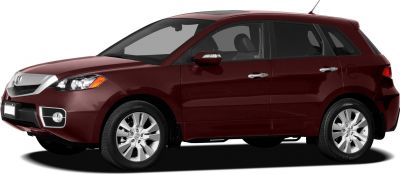
| Production: | 2009-2012 |
|---|---|
| Model Year: | 2010 |
| Length: | 4635 mm182.5 in |
| Width: | 1870 mm73.6 in |
| Height: | 1655 mm65.2 in |
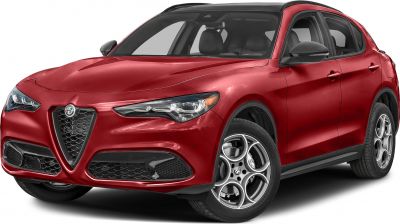
| Production: | 2022-present |
|---|---|
| Model Year: | 2023 |
| Length: | 4687-4701 mm184.5-185.1 in |
| Width: | 2163 mm85.2 in |
| Height: | 1693 mm66.7 in |
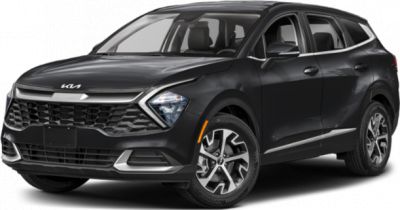
| Production: | 2026-present |
|---|---|
| Model Year: | 2025 |
| Length: | 4540-4685 mm178.7-184.4 in |
| Width: | 1865 mm73.4 in |
| Height: | 1645-1699 mm64.8-66.9 in |

| Production: | 2020-2024 |
|---|---|
| Model Year: | 2020 |
| Length: | 4641 mm182.7 in |
| Width: | 2098 mm82.6 in |
| Height: | 1646 mm64.8 in |
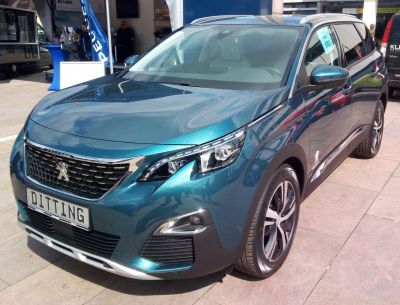
| Production: | 2016-2020 |
|---|---|
| Model Year: | 2017 |
| Length: | 4641 mm182.7 in |
| Width: | 2098 mm82.6 in |
| Height: | 1646 mm64.8 in |
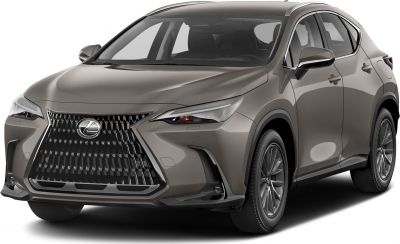
| Production: | 2021-present |
|---|---|
| Model Year: | 2022 |
| Length: | 4661 mm183.5 in |
| Width: | 1865 mm73.4 in |
| Height: | 1661 mm65.4 in |

| Production: | 2014-2017 |
|---|---|
| Model Year: | 2015 |
| Length: | 4630 mm182.3 in |
| Width: | 1845 mm72.6 in |
| Height: | 1645 mm64.8 in |

| Model Year: | 2025 |
|---|---|
| Length: | 4634 mm182.4 in |
| Width: | 2063 mm81.2 in |
| Height: | 1626 mm64.0 in |
